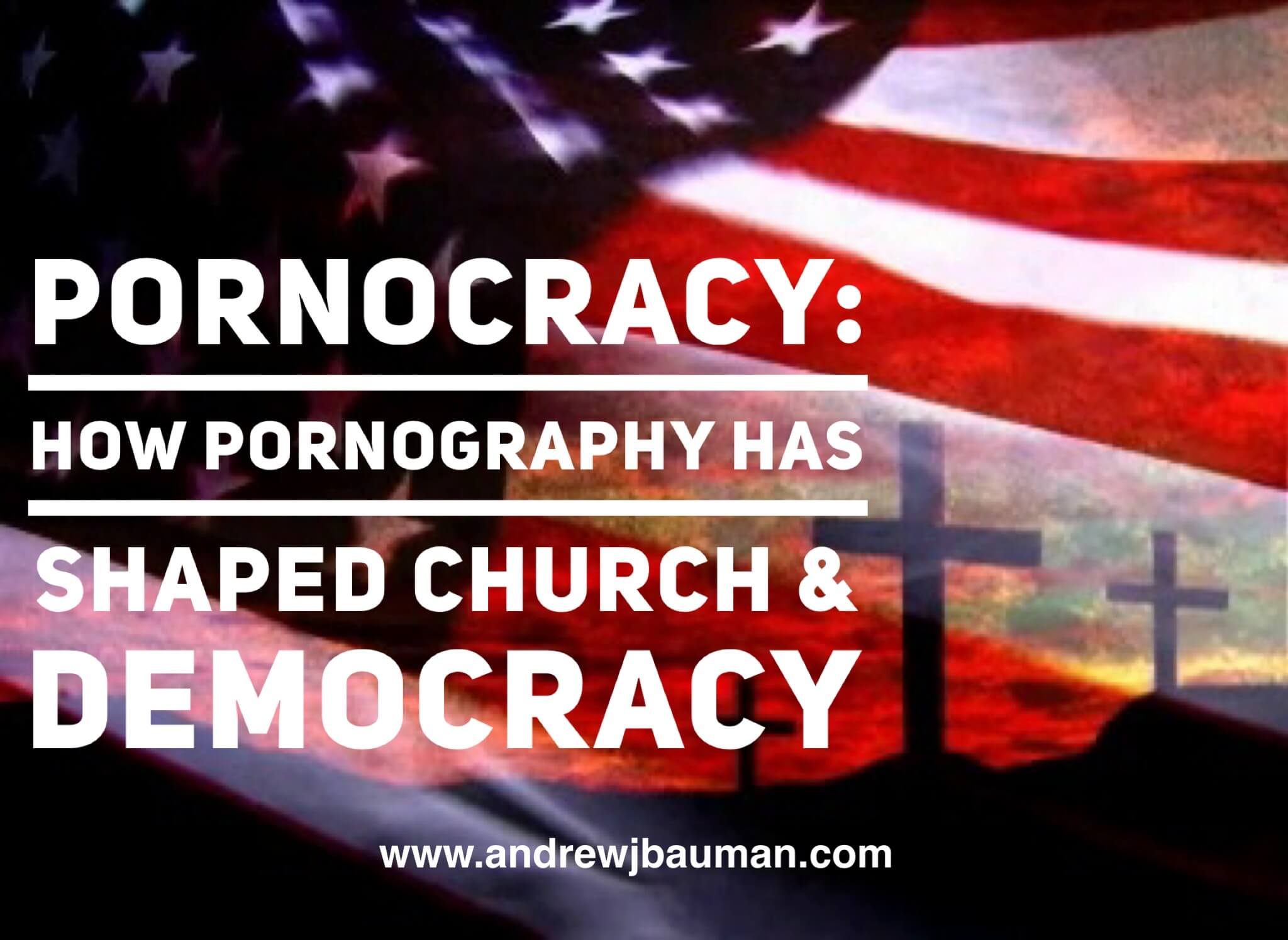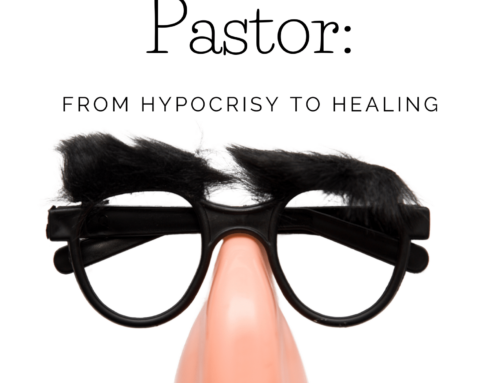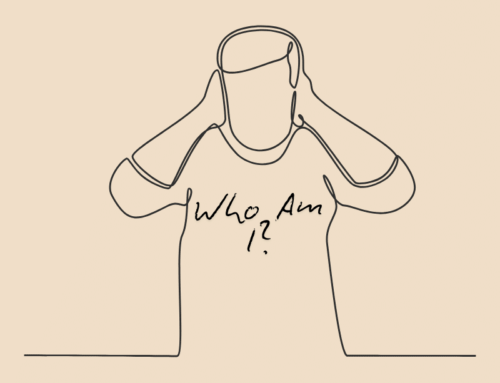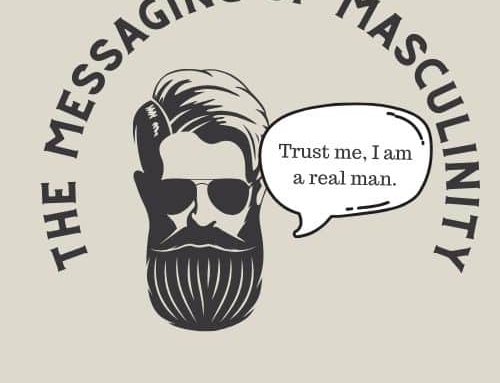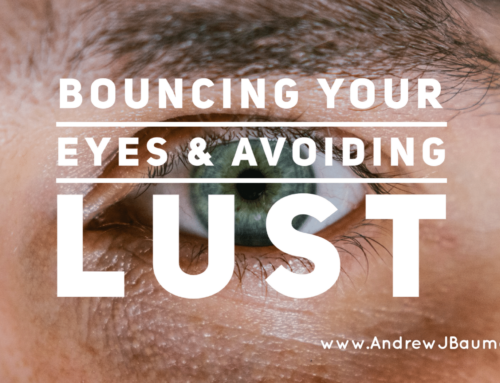Recent events in the news regarding sexual assault have tapped deep into fears of men who believe they will be held accountable for horrific things they did as teenagers, and women who fear they will be questioned and interrogated about some of the most painful and confusing trauma in their lives. I want to offer a somewhat different perspective on what I believe is playing out on our national stage, which unfortunately is far less hopeful.
The #MeToo movement has begun to shine light into previously ill lit corners of our collective broken sexuality, yet a generation of men’s minds have already been hijacked by pornography. This has developed a pornographic mindset and pornographic style of relating in an entire generation of men, and sadly, I believe this exposure we are seeing is only the tip of the iceberg. The last 20+ years of internet pornography has set the stage for men in current places of power to live out their sexual appetites and fantasies in real life by creating an unconscious misogyny and cultivating a culture of systemic patriarchy in our churches and government. In this article I will discuss what it means to work toward the redemption of this pornified system and begin to bring justice to the broken insecure men who continue to perpetrate it.
The Barna group launched a nationwide study on pornography called the “Porn Phenomenon.” They reported “most pastors (57%) and youth pastors (64%) admit they have struggled with porn, either currently or in the past.” Yes, even our most sacred places, our churches, have become pornified. Though 56% of women under the age of 25 seek out pornographic materials, 81% of teen and young adult men, ever seek it out. “Eight out of ten (79%) men between the ages of 18 and 30 view pornography at least monthly.
This large amount of consumption of porn by men specifically, has led to a baseline of objectification towards women, a longing to conquer, possess, and devour beauty rather than to honor in it. The objectification has led to a growing posture of unconscious misogyny toward women. This pornification of our society and our churches has impacted us in numerous ways we loathe to admit.
How has this Pornification and Sexualization Impacted us?
#1 – This has created an unconscious misogyny
Misogyny is defined as the dislike of, contempt for, or ingrained prejudice against women. Pamela Paul, (2010) “From Pornography to Porno to Porn: How Porn Became the Norm” states, “Countless men have described to me how, while using pornography, they have lost the ability to relate to or be close to women … They found the way they looked at women in real life warping to the pornographic fantasies they consumed onscreen. Their daily interactions with women became pornified. Their relationships soured. They had trouble relating to women as individual human beings. They worried about the way they saw their daughters and girls their daughters’ age.”
Why does Porn lead to Misogyny?
When pornography becomes our primary teacher or guide in our sexual development, we learn certain ways of being, what I call a “Pornographic Style of Relating.” We relate to women the way we relate to the porn, which taught us how to be sexual. Many men develop a love/hate relationship with women as a result of the warping of their minds through pornography consumption.
For example, consider a pastor who is secretly involved with using pornography and holds deep shame because of his double life and lack of authenticity. He’ll be predisposed primarily to two extreme responses, either inappropriately seducing women he is around, making them feel adored and special, incredibly cared for/loved, or engaging in the complete opposite: leaving the door open during one on one meetings; convincing himself that his actions are “above reproach”, being overly guarded and closed off, shaming women in his congregation for wearing inappropriate clothing, becoming extremely legalistic, having so much contempt and hatred for women that it bleeds out into every interaction. He won’t take feedback or allow women’s words to affect him. He keeps women at arm’s length; his unconscious thought is, “Women are a part of my shame. I hate my shame, so I hate women.” The pastor’s hatred of his own unaddressed shame then gets projected outward onto women in his life and congregation. This projection comes out in the form of contempt, misogyny, and disdain towards whatever triggers his unaddressed pain.
How else has this pornification of society impacted us?
#2 Created a Culture of Systematic Patriarchy
A 2002 Ryan J. Burns study looking at heterosexual men who used pornography called, “Male Internet Pornography Consumers’ Perception of Women and Endorsement of Traditional Female Gender Roles” found that the more pornography the man consumed, the more likely he was to describe women in sexualized and stereotypically feminine ways; to approve of women in traditionally female occupations; and to value women who are more submissive and subordinate to men. Porn sets us up to believe women are there solely for our pleasure and to service our needs. This idea sets the table for a system of patriarchy.
Patriarchy is “a system of society or government in which men hold the power and women are largely excluded from it.” With misogyny deeply entrenched into our male psyche, the natural next progression is the birth of patriarchy. With the unconscious posture that “women are less than”, men take their “rightful” places of power with women serving as a step ladder, making sure men retain that power. This is made possible by women’s own internalized misogyny and sexism, “Internalized sexism is defined as the involuntary belief by girls and women that the lies, stereotypes and myths about girls and women that are delivered to everyone in a sexist society are true.”
This systemic patriarchy has bled into nearly every fiber of our culture. In our own United States government, in the House of Representatives, women hold just 83 (19.1%) of the 435 seats. In the Senate, women hold just 21 (21%) of the 100 seats. Let’s not forget the past sexist comments of our current president, condoning sexual assault, “I just start kissing them. It’s like a magnet. Just kiss. I don’t even wait. And when you’re a star, they let you do it. You can do anything. Grab them by the p***y. You can do anything.” Liberal friends not to worry you are just as sexist (shout out to Bill Clinton, Harvey Weinstein and Louis C.K.) on both sides of the aisle, the sin of patriarchy is within us all.
It’s not just in our government, I would argue it’s even worse in our Churches. The culture of systemic patriarchy has invaded from within the walls of where we worship. Though women make up the majority of church congregations (“Among the 53 nations Pew analyzed with enough Christian respondents, there is an average difference of 7 percentage points between men (46 percent) and women (53 percent)”, yet The Barna group found that only “one of every 11 Protestant pastors is a woman.” That is less than 10% in 2018! We silence women’s voices, equally silencing God’s in order for insecure men to retain our power and control. It seems far too steep of price to pay.
I grew up in the south. Women were less than. No one would have openly said that, but we all knew. We were supposed to treat women with respect to their face, but when it was just us guys, we could judge them for their bodies, not take them seriously, and make crude humiliating jokes at their expense. We could label it “guy talk” or locker room banter, or claim we were just joking to take the edge off of any lingering guilt. So when I got into ministry as a youth and college pastor, the culture wasn’t much different. Yes, the jokes were a little tamer, less degrading, but the boys’ club was still the boys’ club, and women were not invited. They didn’t quite understand our divinely appointed leadership roles, and their voices were not only not encouraged, they weren’t even considered relevant to the important work of God we were doing.
11 years ago I was seeking a job in Seattle, WA as I was about to start my graduate school journey to become a psychotherapist. I was a youth pastor at the time and looking for a youth pastor gig in my new city. I found a well-paying youth pastor role and put my name into the national search. To my surprise, over the course of a few months I was a finalist to be selected for the position. It was a perfect opportunity; I could go to school full time and do the youth pastor job well, basically in my sleep. In my final interview with the board, they asked me to describe myself in 3 words. I quickly retorted, “A.D.D.!” They loved it, I had them rolling and eating out of the palm of my hand. I was a shoo-in for the job, until they asked me one final question. “Andrew, we see you have a lot of experience in the Southern Baptist church, are you aware we have a woman as a pastor? How do you personally feel about that?” I froze. I hadn’t even thought of that being the case, a woman?!? I mean, I had heard of these things but it was like spotting an endangered Finless Porpoise or a Bengal Tiger, exotic and fairly unheard of in the church world I grew up in. I continued, “Um…” I stuttered, “Well, um… OK well, I know what the Bible says about that…” I tried to make another joke and sound cool with the whole idea. When truly, I was mortified. I had internalized my own sexism and could not believe that a woman could teach and pastor me, a red blooded male. The entire tone of the interview changed at that moment, and the following day I withdrew my name from the running for the position.
This embarrassing story above is only a decade old, and I still cringe thinking about it. I know many other good hearted, God-loving pastors who want to please God, but are unaware of their attitudes towards women and how their own internalized sexism impacts females in their ministry.
One of the best ways these good hearted men in ministry or any position of power can thwart this process is to begin listening to the stories of women. A couple years ago, a hashtag on Twitter began trending: #ThingsOnlyChristianWomenHear. Women began sharing true stories of what they heard in church. “You can teach the women and children; you just can’t teach the men.” “You are an amazing leader! You’d make an excellent pastor’s wife someday!” “Women are too emotional to be leaders and pastors. It would never work.” “She can’t lead worship because no one sings along when women are the lead singers. But backup is fine!” And finally, “Biblical Womanhood can be defined by marriage and motherhood.” I remember a few years ago a prominent Seattle pastor calling women “Penis homes”. Sadly, these stories are not isolated incidences, and those with power must be the ones who begin to change the script. Finally, how has pornification and sexualization impacted us?
#3: Pornography has normalized sexual abuse and silenced a woman’s experience
In 2010, Mary Anne Layden, wrote “Pornography and Violence: A New Look at the Research,” in The Social Costs of Pornography. Her study looked at women who were victims of domestic or partner violence. Among those who had been raped, 73 percent stated that their partners had used pornography. This is how pornography works: you need more and more to get the same amount of dopamine rush. Those who use normally go to riskier and riskier behaviors to continue to maintain their fix. World Health Organization cites “one in three women experience sexual or physical violence — most likely from their intimate partner.” Intimate partner violence is so sly and difficult to convict in the court of law because of the secretive and intimate nature of the violence.
How do we fix this? What can we do?
#1: Know our own Story:
Have you told the truth about your life, or are you still committed to minimizing your own darkness and level of brokenness? Are you willing to look deeply at your own story and see how the pieces fit together? To know our story is to know our pain, to know our pain is the beginning of transforming our pain. Are you prepared to grieve over your unmet needs and betrayals? As Richard Rohr states, “If we do not transform our pain, we will most assuredly transmit it.”
#2: We must own our sin and our sexual brokenness:
We must take responsibility for our internalized misogyny and patriarchy. To transform these heartbreaking cultural norms as Christians, we must lead with our brokenness as Paul demonstrates in 1 Timothy 1:15, “Christ Jesus came into the world to save sinners, of whom I am the worst.” Tiziana DellaRovere writes, “Men must take responsibility to change the violent and destructive aspects of patriarchy side by side with women. Whether you have violated women or not, you must commit yourself to transforming the misguided, patriarchal values and attitudes that you have internalized if you want a life founded on love and a society based on equality, compassion, and creative abundance.”
I facilitated a workshop on addiction a few years ago, and as it was nearing a close, I fielded questions from the audience. Someone asked a question along the lines of, “Have you as a professional ever struggled with your own addictions?” I was presented with an opportunity to break my silence, to step out of hiding for the first time with people I sensed would embrace me in the midst of my shame. From my experience with clients who had honored me by sharing their shame stories, I knew that inviting a safe person into the places where self-condemnation prevailed would be liberating and healing. With trepidation but hope, I admitted to a roomful of strangers that I had been addicted to internet pornography. I had never confessed my addiction out loud, except within the confines of therapy.
When the words left my lips, I nearly lifted my hands in an attempt to grab them and wrangle them back into my mouth. In a panic, I said to myself, What have I done? But then I began to feel something wash over me: a divine and holy kindness, like baptismal waters washing away my shame. Maybe that is what the Holy Spirit feels like. In a place where I had always held self-contempt, kindness snuck in without my permission. The shame lifted and I was able to own my story publicly for the first time.
As I scanned the room, looking for expressions of judgment and disgust, I found none. What I did find were soft eyes full of tears and kindness locked onto mine. Their faces were gentle, their bodies leaning in toward mine as I continued to share a condensed version of my addiction journey. Even though I had spent years in therapy engaging my shame and experiencing a modicum of healing, this terrifyingly sacred experience of self-disclosure turned out to be the most liberating of all, not only for me but perhaps also for my listeners. (This is a story above is from my new book Stumbling Toward Wholeness).
#3 Tell Our Stories:
We must each speak our truth. Despite the darkness of our stories, God is truth. and the more we tell the truth of both our glory and our darkness, the more we can experience God. Men, make peace with your shame, that you have been an abuser and complicit in this suppressive system that has silenced a part of God’s image. Women must make peace with their shame and self-contempt. It is not your fault or your body’s fault if you were abused. Grief and rage seem to me the most holy thing you can step into to fight this injustice.
In telling our stories we must be aware of how embodied our shame has become, meaning, what parts of your body bear trauma and have been harmed? Will you allow those parts of your body to also tell their story?
#4: No more bystanders:
Crass joking about woman in the kitchen, objectification, or sexualizing them to somehow be cool or “one of the guys” is not acceptable. It’s time for men to use their power and privilege to say no! What if next time you were a witness to sexism you simply said, “No, guys, that’s not cool”, or “I don’t really find degrading women funny”?
#5: Build a comprehensive sex-positive ethic:
No more silence or shame guiding our rhetoric around sexuality, especially in the Christian world. We must begin to build a positive sex ethic that is not based on shame or a negative posture towards sex. Sex is holy and stunning. The mishandling and harming of women is a consequence of our silence and shame towards sexuality. If you are interested in developing a more positive sexual ethic, look up Dr. Tina Sellers work.
We can change this.
